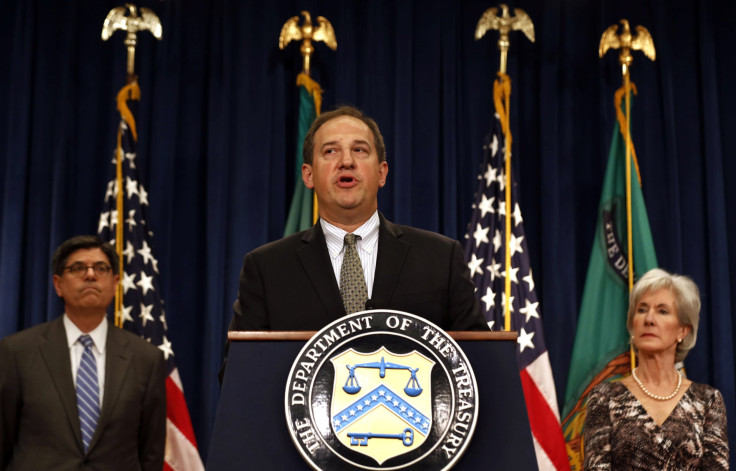Fantasy Sports Industry Forms Self-Regulatory Board As Federal, State Officials Mull Legality

Update (10:20 a.m. ET): Daily fantasy sports operator DraftKings addressed the creation of the self-regulatory body in a statement.
“We are committed to working with the Fantasy Sports Control Agency, the FSTA and all relevant government authorities to ensure that our industry operates in a manner that is completely transparent and fair for all consumers," DraftKings CEO Jason Robins said. "At DraftKings, we recognize our responsibility to the millions of fans who are captivated by the excitement and interactive nature of daily fantasy sports, and ensuring a level and fair playing field for all players is a fundamental tenet of our company. We believe the Fantasy Sports Control Agency will help our industry establish best practices that further this important goal.”
-
The fantasy sports industry, including top daily fantasy sports outlets DraftKings and FanDuel, have agreed to operate under a self-regulatory body that will assess internal protocol and standards, a news release said Tuesday. The organization’s creation was announced as federal and state officials probe whether daily fantasy sports contests are legal under current guidelines and if they should be subject to formal regulation.
Seth Harris, a former acting U.S. secretary of labor under President Barack Obama, will lead the self-regulatory body, which will be called the Fantasy Sports Control Agency, the Fantasy Sports Trade Association said in a press release. The FSTA, which has lobbied on the industry’s behalf since 1998, oversaw the self-regulatory body’s creation.
Harris and FSTA board members have reportedly met with officials from professional sports leagues and private stakeholders to discuss what form self-regulation will take, but the FSCA's funding and composition have yet to be determined. The regulatory panel will focus on establishing internal standards for company and employee behavior, as well as safeguards to protect consumers from fraud, across companies that offer both season-long and daily fantasy contests.
“We are confident that an independent control agency can prevent any unethical, dishonest or unfair behavior,” Harris said in a statement. In the process, we can save lawmakers and regulators the cost and effort of intervening so that they can expend their limited resources on bigger and more societally important challenges."
A fantasy sports control agency to be led by a former Obama administration official: https://t.co/O872FyANvS #DFS pic.twitter.com/ZjWAOwjt4q
— Sarah E. Needleman (@saraheneedleman) October 27, 2015FanDuel and DraftKings are privately owned companies valued at more than $1 billion each, with hundreds of millions of dollars in backing from private investors. Both companies expect to dole out more than $1 billion in prizes in 2015. Daily fantasy sports companies contend their contests are games of skill, not games of chance, and that the games are legal under a 2006 statute that excludes fantasy sports from bans on other forms of online gambling.
The daily fantasy sports industry has dealt with unprecedented national scrutiny since early October, when reports surfaced that a DraftKings employee accidentally leaked inside information about fantasy football lineups the same week he won $350,000 playing in a FanDuel contest. While there’s no evidence the employee directly benefited from the leaked information, the incident led to formal inquiries by the FBI, the U.S. Department of Justice and officials in several states. Some form of industrywide regulation is widely seen as inevitable, though it's unclear if oversight will occur on a federal or a state-by-state basis.
Nevada regulators formally classified daily fantasy sports as a form of gambling this month and banned such companies from operating within state boundaries without proper licensing. Illinois lawmakers were expected to introduce a bill Tuesday that would regulate the daily fantasy sports industry on a state level by banning company employees from entering contests on other sites and establishing audit protocols to assess consumer protection standards, the Wall Street Journal reported.
© Copyright IBTimes 2025. All rights reserved.






















